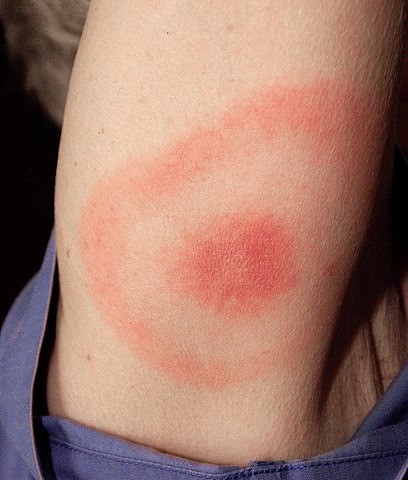What do Lyme Disease and Syphilis have in common?
Although transmitted in different ways, Syphilis and Lyme Disease share several characteristics. Symptoms, treatment and long-term health complications to name a few. Here we discuss the main differences and similarities between these two bacterial infections.
What is Lyme Disease?
Lyme Disease is transmitted to humans through a bite from an infected tick. For the infection to be transmitted, the tick must be present on the skin for 36 hours or more. It cannot be passed from one person to another through sexual contact.
What is Syphilis?
Syphilis is a sexually transmitted infection (STI) passed from one person to another through direct contact with a sore during vaginal, anal or oral sex.
So, how are Lyme Disease and Syphilis similar?
1. Symptoms
Both imitate many other diseases. Symptoms include fatigue, headache, fever and muscle or joint pain/aches.
However, there are two distinguishing symptoms to look out for:
| Lyme Disease | Syphilis |
| A circular rash around the area of the tick bite, often resembling a ‘bull’s eye’. It usually appears within the first 4 weeks but can take up to 3 months. Some people may not develop a rash. | A chancre / sore in the genital area or around the mouth. This appears between 10 and 90 days after infection. |

2. Progressive stages
Both have an early stage and a late stage. The longer either infection is left untreated, the more severe it becomes. Both Syphilis and Lyme Disease can become dormant in the body before eventually spreading to vital organs including the brain, heart, eyes and the nervous system.
3. Treatment
Both are treated with a course of antibiotics. Your doctor will prescribe you the most appropriate medication for you. It is important to detect and treat the infection as soon as possible.
4. Serious long-term health problems
Both can cause problems such as movement disorders, arthritis and mental disturbances if left untreated. As the infection spreads and advances to a later stage, it can cause irreversible damage to the body.
5. Consequences during pregnancy
Both can cause miscarriages and stillbirths. If left untreated, both Syphilis and Lyme Disease can be harmful or even fatal to an unborn child.
Testing
Better2Know provides fast and accurate testing for both Syphilis and Lyme Disease. Get in touch with our Sexual Health Advisors today to arrange your confidential appointment.
Sources
[1] Healthline: Everything You Need to Know About Lyme Disease
[2] CDC: Syphilis
[3] NHS: Lyme disease
[4] March of Dimes: Lyme disease and pregnancy
Categories
- Awards
- Bacterial Vaginosis
- Blood Tests
- Cervical Cancer
- Chlamydia
- Condoms
- Covid-19
- Gardnerella
- Genital Warts
- Gonorrhoea
- Health and Wellness
- Hepatitis A
- Hepatitis B
- Hepatitis C
- Herpes
- HIV
- HIV (AIDS)
- Home Testing
- HPV
- Instant Testing
- MSM
- Mycoplasma
- News
- Non-Specific Urethritis
- PAP Smear
- Pre-Pregnancy
- Sexual Health
- STD Symptoms
- STD Tests and Screens
- STI Transmission
- Stigma
- STIs
- Swab Tests
- Syphilis
- Trichomonas
- Ureaplasma
- WSW
- Zika
